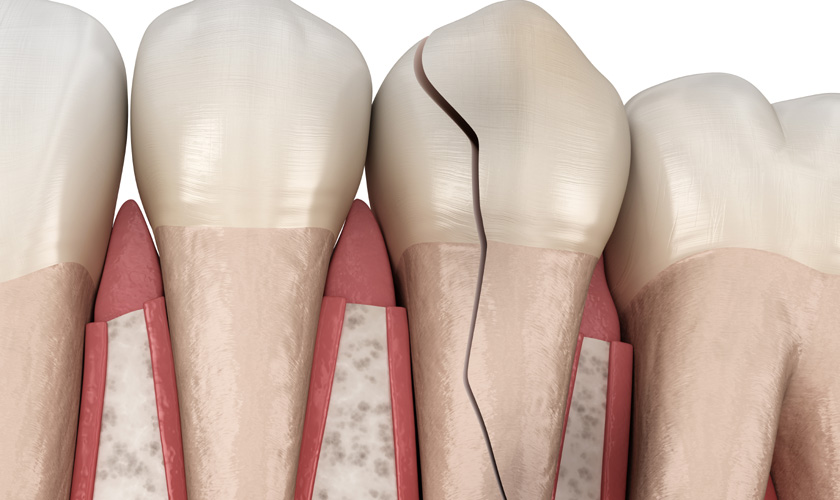717 Newfield St. Middletown, CT 06457


Last Updated: December 5, 2023
Medically Reviewed By:
Dr. John Pavlakis, Cosmetic Dentist
A dental emergency can strike unexpectedly, sending a wave of discomfort and anxiety. Understanding the root causes behind these emergencies can pave the way for prevention and proactive care. While some dental issues are gradual, others arise suddenly, demanding immediate attention. Let’s delve into the most prevalent causes of dental emergencies and explore how to navigate these critical situations.
1. Trauma and Accidents
Accidents, falls, or sports injuries often lead to dental emergencies. The impact from such incidents can cause teeth to chip, crack, or even get knocked out entirely. The trauma might result in severe pain, Bleeding, or structural damage, necessitating urgent dental intervention. Wearing mouthguards during high-risk activities significantly reduces the chances of such accidents.
2. Untreated Cavities
Neglecting dental cavities can escalate into an emergency. Tooth decay gradually weakens the enamel, leading to cavities that deepen over time. When left untreated, cavities can cause excruciating pain, infections, and even abscesses. Routine dental check-ups help identify cavities at an early stage, preventing them from evolving into critical situations.
3. Gum Infections and Abscesses
Gum infections, often caused by untreated cavities or gum disease, can result in abscesses. These painful pockets of pus demand immediate attention as they can lead to severe complications if left unaddressed. Symptoms like swelling, throbbing pain, fever, and a foul taste in the mouth indicate the presence of an abscess.
4. Wisdom Teeth Complications
The eruption of wisdom teeth can cause significant discomfort and lead to dental emergencies. Often, these teeth don’t have sufficient space to emerge properly, leading to impaction, infections, and pain. Monitoring wisdom teeth through regular dental visits allows for timely intervention before they become problematic.
5. Orthodontic Issues
Malfunctioning orthodontic appliances or braces can cause emergencies. Broken wires, loose brackets, or displaced bands can result in oral injuries or soft tissue damage. Seeking immediate assistance from an orthodontist prevents further complications and discomfort.
6. Dental Procedures Gone Awry
Sometimes, complications arise post-dental procedures, leading to emergencies. Infections, nerve damage, or excessive Bleeding might occur after a root canal, extraction, or implant surgery. Following post-operative instructions diligently and reporting any unusual symptoms to the dentist is crucial for managing such situations.
Preventive Measures for Dental Emergencies
Prevention often serves as the cornerstone of mitigating dental emergencies. Maintaining good oral hygiene through regular brushing, flossing, and using mouthwash significantly reduces the risk of cavities, gum disease, and subsequent emergencies. Additionally, wearing mouthguards during sports activities or at night minimizes the chances of accidents and dental trauma for individuals prone to grinding teeth.
Regular dental check-ups play a pivotal role in early detection and prevention. These visits enable dentists to identify potential issues in their infancy, offering timely interventions before they escalate into emergencies. Adhering to recommended dental care routines and heeding professional advice fortifies oral health and diminishes the likelihood of emergencies.
Dealing with a Dental Emergency
1. Immediate Action
Time is of the essence when dealing with a knocked-out tooth. Immediate action increases the chances of saving the tooth. Follow these steps:
Handle Carefully: Pick up the tooth by the crown avoiding contact with the root. Touching the root can damage delicate tissues necessary for reattachment.
Clean Gently: If the tooth is dirty, rinse it with milk or saline solution. Avoid scrubbing or using any cleaners, and never dry the tooth or wrap it in tissue.
Preserve Properly: Ideally, reinsert the tooth into its socket gently. If not possible, place it in milk or saliva to keep it moist. This helps preserve the tooth until dental treatment.
Seek emergency dental care immediately. Dentists have a short window of time to successfully reattach a knocked-out tooth.
2. Pain Management
Dental emergencies often come with intense pain. Over-the-counter pain relievers like ibuprofen or acetaminophen can help manage discomfort temporarily. Always follow dosage instructions and consult a healthcare professional if there are any concerns about medication use.
Applying a cold compress or ice pack wrapped in a cloth to the affected area can alleviate swelling and numb the region. Be sure to apply it intermittently, giving breaks in between to prevent potential damage from excessive cold exposure.
3. Contacting a Professional
In any dental emergency, contacting a dental professional is paramount. Dentists are equipped to handle emergencies and can provide guidance over the phone or schedule immediate appointments. Most dental offices have emergency protocols and slots reserved for urgent cases.
Calling ahead is crucial to ensure the dental office is prepared for your arrival and can provide prompt care. If the emergency occurs outside regular office hours, many areas have emergency dental services available.
4. Managing Bleeding
Bleeding from the mouth can be distressing during a dental emergency. To control Bleeding:
Apply Pressure: Use a clean, damp cloth or gauze and apply gentle pressure to the area that’s bleeding. This helps stem the flow of blood. Avoid using tissue or materials that may leave behind residue or fibers.
Maintain Pressure: Keep the pressure steady for about 15-20 minutes. If Bleeding persists, seek immediate medical attention by visiting an emergency room or contacting emergency services.
Avoid vigorous spitting or rinsing, as this can dislodge blood clots and worsen the Bleeding. Tilting the head slightly forward while applying pressure can help minimize swallowing blood.
By embracing preventive measures and prompt action in emergencies, individuals can navigate dental crises with more confidence and ensure long-term oral health and well-being. Remember, staying informed and proactive is the key to a healthy smile that lasts a lifetime.




